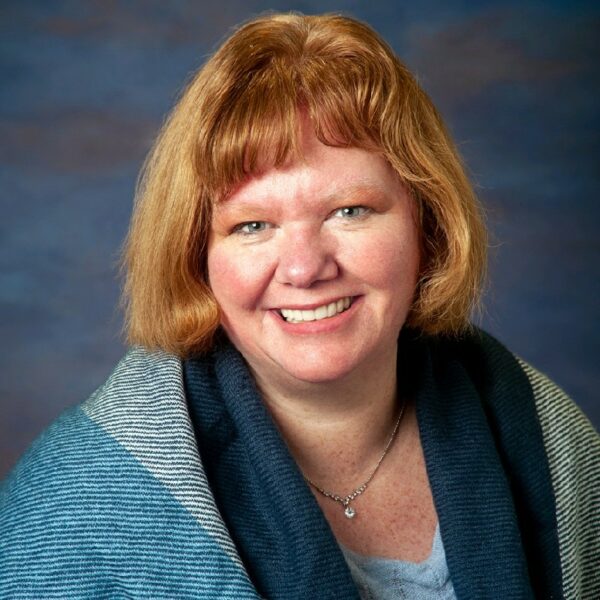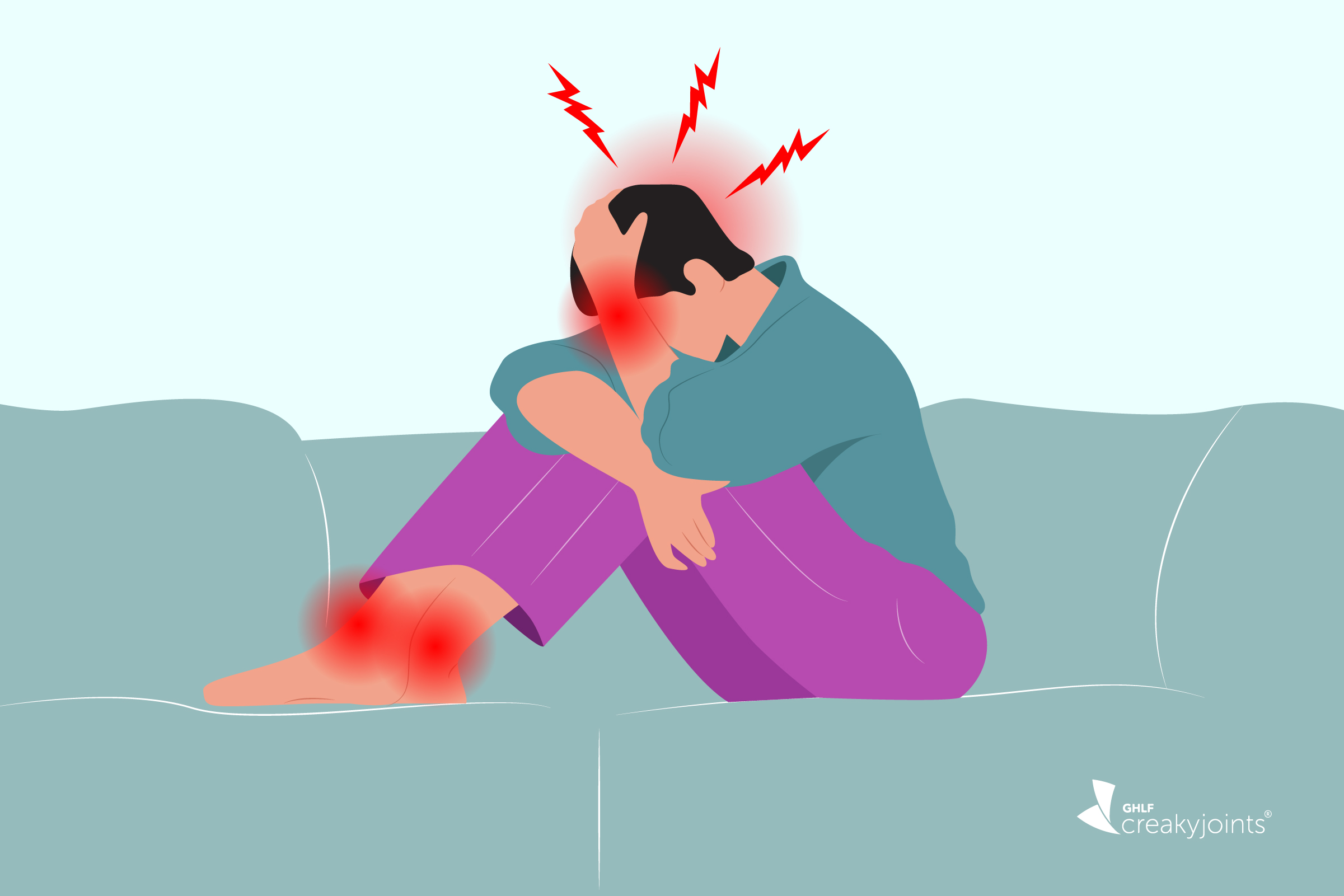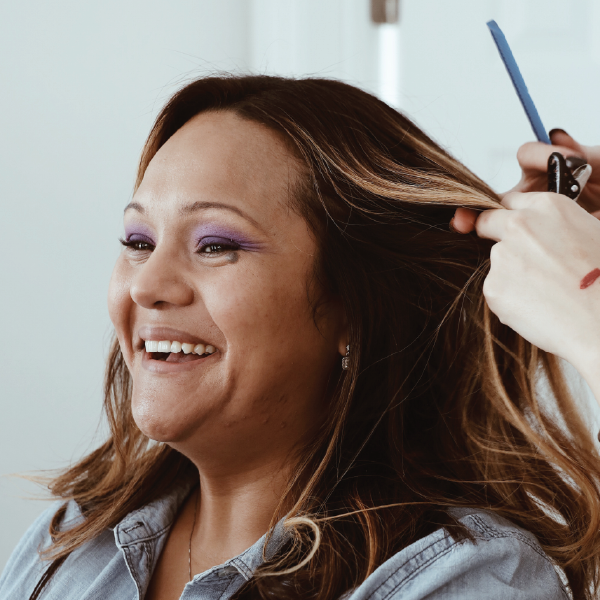Learn more about the approval of a new drug, BIMZELX (bimekizumab-bkzx), for people with moderate to severe plaque psoriasis.
More Than Meets the Eye: How Psoriasis Impacts Melissa Withem-Voss’s Everyday Life
More Than Meets the Eye: How Psoriasis Impacts Melissa Withem-Voss’s Everyday Life
“People need to be aware that it’s not uncommon to experience darker thoughts alongside psoriasis because you feel like you’ve hit rock bottom.”
August 3, 2023
Bowei Li

For Melissa Withem-Voss, psoriasis is more than just a medical skin condition; it becomes an identifying trait that defines how others see her. When she’s out in public with her psoriasis, she often gets unwanted attention. Even simple activities that bring her joy can be accompanied by moments of stigma and judgement for her.
Melissa has had a range of psoriasis types, including plaque, guttate, scalp, palmer plantar, and pustular. At one point, she had an uncommon form known as erythrodermic psoriasis, which covered 97 percent of her body.
Unfortunately, managing stigma has been part of her journey in managing her disease. “I was in line at a zoo — a local zoo here in Chicago — and I had a lady turn around and asked if my sores were something that were contagious [and] why wasn’t I covered up,” shares Melissa. “I very calmly told her that I had psoriasis. I told her that there was no more reason for me to be covered on a 95-degree day than her. I explained to her that it was a condition that was non-contagious.”
Still, without qualms, the woman kept stepping away. “[This] was before the days of COVID and the immediate knowledge of ‘Ew, get away,'” continues Melissa.
Stories like Melissa’s highlight the significant impact of social stigma on individuals living with psoriasis. It deeply affects their mental health, leading to feelings of isolation, depression, and anxiety — an aspect of psoriasis that is often overlooked.
“People need to be aware that it’s not uncommon to experience darker thoughts alongside psoriasis because you feel like you’ve hit rock bottom,” explains Melissa. “It’s usually around the time frame that you’ve been diagnosed for a little bit. You’ve tried a couple things and maybe failed them. You start to feel kind of a depression of ‘Okay, where do I go from here? What’s next? It’s not a journey for the faint of heart.”
Holding Her Breath During Treatment
Today, there are more options than ever for treating psoriasis, but it may take some trial and error, which can cause added anxiety. “Whether topical or biologic, [medications] will work for an undetermined amount of time; whatever your body accepts,” explains Melissa. “And then suddenly, you’ll start noticing either breakthrough, or it feels like it stopped working completely…You want to give it as much positive vibes as you can. But at the same token, it’s kind of stuck in the back of your head of ‘When is this gonna quit?’”
To cope with the unpredictability, Melissa emphasizes the importance of planning with her physician. She shares, “You usually tend to plan a Plan B with your physicians. Like, okay, once this drug doesn’t do what it’s doing now, what are we going to do then?”
Seeking Total Support
Melissa has not just lived with psoriasis but also many related conditions for several years. “For instance, I’m a diabetic,” she explains. “And that’s kind of common. It’s usually more frequent for people to be overweight with psoriasis because we’re not as active in as many ways as we once were.”
This highlights how psoriasis affects not only the skin but also multiple organs, posing additional challenges to leading a healthy and happy life. “You have to really look after yourself in all different ways,” says Melissa, emphasizing the physical and mental effects of psoriasis.
Melissa has learned to care for herself during times of stress and hardship. She emphasizes that seeking help from a health care provider, support group, or counselor is essential when feeling overwhelmed.
“My rheumatologist takes care of my arthritis, my dermatologist handles my skin and related issues, and my primary care physician manages most of my comorbidities. It’s like a melting pot of different physicians being involved.”
Despite the isolation psoriasis may bring, it’s important to remember that millions of people across the country share this experience. Support systems are available not only for physical health but also for mental and social well-being. Melissa’s story and advice remind us of the significance of taking care of all aspects of health to holistically manage psoriasis.
You can hear more from Melissa as well as other stories from people living with psoriasis on GHLF’s podcast, Getting Clear on Psoriasis. Listen here.
Join GHLF’s HEROES Program
GHLF invites you to make a difference in your community with our FREE and unique program called HEROES (Health Education + Reliable Outreach + Empathetic Support). HEROES is a FREE education and outreach initiative that equips beauty professionals to better support clients living with scalp and other skin conditions and offers people living with skin and scalp conditions helpful resources and information on getting a proper diagnosis, managing symptoms, and becoming an empowered patient. To learn more, visit GHLF.org/HEROES today.
SUBSCRIBE TO GHLF
RELATED POST AND PAGES
_
Was this article helpful?
YesNo






